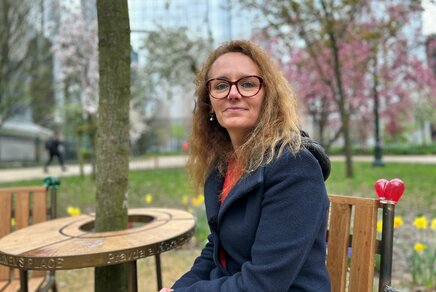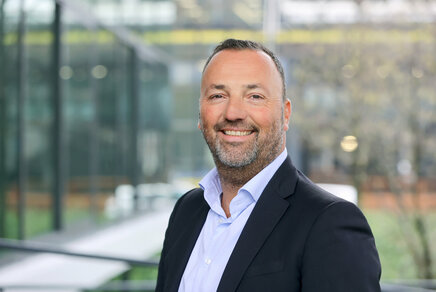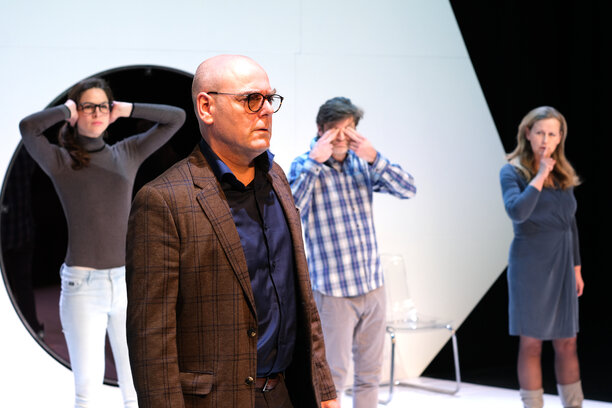‘What we are seeing may be only the tip of the iceberg’
For years GertJan van Heijst offered a listening ear as confidential advisor for academic integrity at our university. On January 1st Sem Borst took over this valuable role from him.
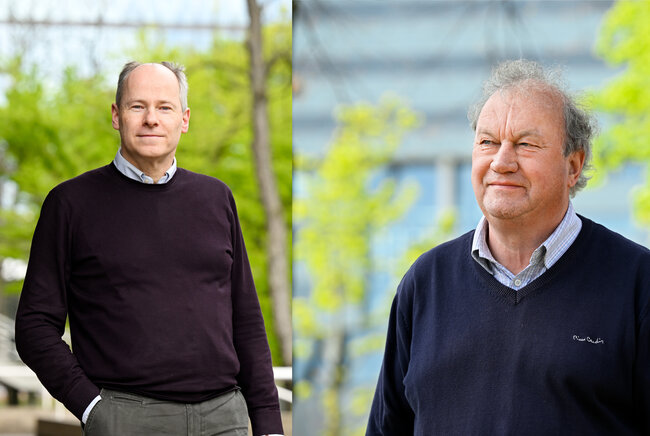
If you are involved in academic research, openness, honesty and integrity are the hallmarks of your conduct. You respect your colleagues. This sounds logical and self-evident, but things can happen that put academic integrity at risk. Is something like this affecting you and would you like to talk about it with someone you can trust completely? At TU/e you can speak to the confidential advisor for academic integrity. A conversation with the individuals behind this title: ‘veteran’ GertJan van Heijst and new confidential advisor Sem Borst.
GertJan van Heijst (Professor Emeritus of Fluid Dynamics at the Department of Applied Physics) retired in December 2020. With plans to slow things down a little, he felt the time was right to pass on the baton in his role as confidential advisor for academic integrity. It is being taken up by Sem Borst (Full Professor of Stochastic Operations at the Department of Mathematics & Computer Science), who has held the role since January 1st of this year.
People aspect
Van Heijst: “For eight years I fulfilled the role of confidential advisor. It's the people aspect that most appeals to me: you are talking with people and have a great deal of direct contact with them. First and foremost, you're providing a listening ear. You're unattached to any party, someone to whom others can relate their story in full confidence. People can find themselves in a situation in which they feel trapped, don't know what they should do. A confidential advisor is there to talk to. It's not his or her job to produce a ready-made solution, instead he or she listens and offers their thoughts.”
It's the people aspect that most appeals to me. A person can relate their story to us in full confidence.
Confidential advisor for academic integrity GertJan van Heijst
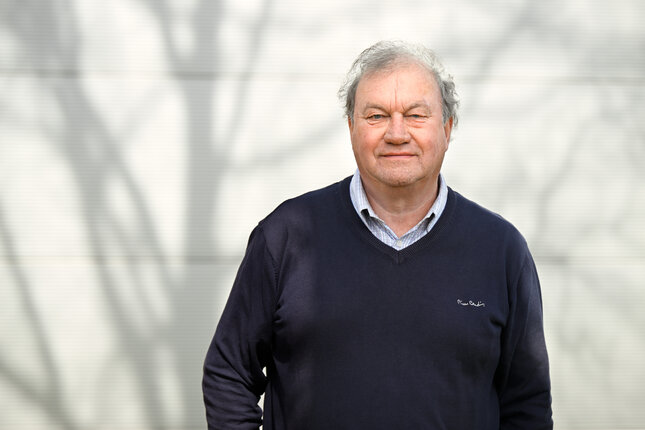
No two cases the same
It has been Van Heijst's experience over the years that many people really are helped by talking with a confidential advisor. No two cases he was privy to were alike, they ranged from improper behavior to the abuse of power, from difficulties with egos and hierarchy, to intimidation and fraud. “You have to realize that many of the people who come to us are really in a bind. They can no longer speak their mind in their group because, for example, their relationship with their superior or their colleagues has broken down. But a confidential advisor is someone they can discuss their problems with. That takes a weight off their mind. And what's more, we put our heads together to work out how their problem can be solved.”
Complaints committee
A confidential advisor prefers to tackle this ‘problem solving’ in a way that does not involve submitting a complaint to the complaints committee. It is not so that a confidential advisor is supposed to stop complaints being lodged - both Van Heijst and Borst are keen to emphasize this point; if that is what is necessary, it will certainly happen. But often a complaint brings you no closer to a resolution, Van Heijst knows. “When someone comes to us announcing ‘I'm going to put in a complaint’ our first step is to look at a number of matters. What is the nature of the complaint, what is the situation? Imagine you submit a complaint, what reaction will it get, what will be expected of you? Do you think submitting a complaint is going to solve your problem? And, even if you are found to be in the right, what situation will this lead to, ultimately? In my experience, there are no winners in a complaints process, only losers.”
Moving from a talking it over to a solution
So if that's not the preferred route, what does a confidential advisor do? Van Heijst: “What you try to do is to arrive at a solution by talking things through. Sometimes the situation is such that there's no way round it, you have to submit a complaint, but in many cases there are other avenues available, much more fruitful options that consume a lot less energy. Of course, the confidential advisor hasn't been appointed to save the complaints committee work, but from an interpersonal perspective it is sometimes a lot smarter and more effective to take a different path.”
Often there are more fruitful options than submitting a complaint, options that consume less energy.
Confidential advisor for academic integrity GertJan van Heijst
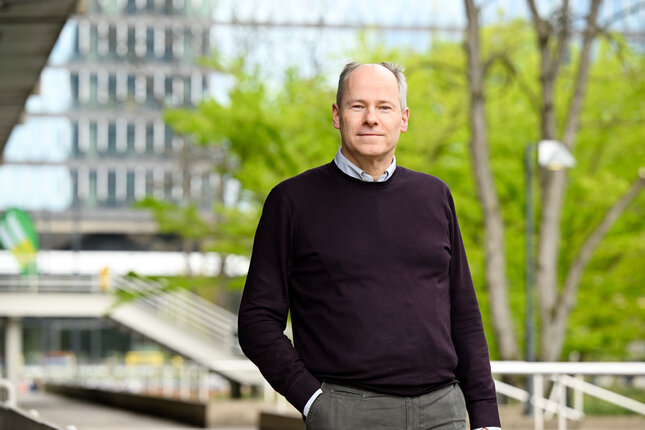
For Sem Borst, who since taking on his new role has not yet handled a case, it is valuable to hear Van Heijst's experiences. They've already discussed the role and what it involves. “To be honest, when our dean asked if I wanted to take on the role, I didn't have a clear idea of what to expect. You read in the papers about the big cases that go off the rails, cases involving, say, data fraud or conclusions being manipulated. At the time that was my only point of reference.
“I took on the role for the same reasons as GertJan: the people side of it appealed to me. And the integrity. For me it's about TU/e and the broader picture. I want to help create confidence in science, and help strengthen it - in society, for example. Social safety is another aspect that appeals to me. Often all these things are intertwined in a single case. I want to help people who feel they are standing alone. Against someone more powerful, against the organization. I am curious to know what I'll experience and how I'll be able to make a valuable contribution in a particular situation.”
Academic integrity must always come first. If things aren't always above board, trust in science is lost.
Confidential advisor for academic integrity Sem Borst
Irreproachable conduct
As a confidential advisor you need to possess various qualities, knows Van Heijst. “Naturally, it has to be someone who knows TU/e, the people and the players, who has contacts and knows how things are done. Someone with seniority, with an overview of things in the organization and of how science is conducted. And, of course, you must have a track record of irreproachable conduct in your academic field. ”
Borst is keen to fulfill the role, and wonders how he will grow into it. “You must be aware that things are never black and white. In research you have to make sure your results capture people's attention, that's understandable. But sometimes things get out of hand. I'll examine the case: where do we draw the line, when has a boundary been crossed? When has someone really gone too far? I'll need to develop a feel for that.”
From infatuation to unwarranted authors
There isn't always a clear-cut line, explains Van Heijst. There are always multiple aspects to take into account. He gives an illustration: “Someone working in a group at TU/e runs into a problem whereby a member of the doctoral committee says that certain passages in the draft dissertation must be removed. It turns out that the project has been financed by the company for which the committee member works, and the passages contain information that grates with the company. This then opens a can of worms: personal relationships in the group are upset, research funding is jeopardized. It's a difficult situation and one that arises not infrequently.
“It can also happen that someone is infatuated with someone else in the same group. If these feelings are not reciprocated, feelings of revenge can be stirred up and things may happen that can damage a person's career.
“Or someone demands that on every article he or she is added to the already long list of authors despite having contributed nothing. That sort of thing happens. Often all these aspects come together; a mix of behaviors relating to academic integrity and psychosocial aspects.”
Those bright and shiny facades conceal a great deal. It's the same at all organizations, including other universities.
Confidential advisor for academic integrity GertJan van Heijst
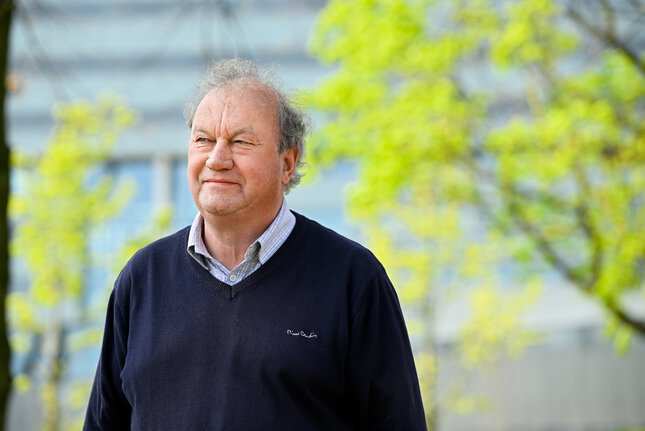
How many cases a year are we talking about? It varies, says Van Heijst. In some years ten people would come to him. In others he would handle just two or three cases. Some cases span the years, others are brought to a conclusion with a couple of discussions.
Both confidential advisors are aware that what they see, and the people who seek them out, may well be the tip of the iceberg. Van Heijst: “Many more people may be coping with a problem of this nature but thinking, ‘Oh well, it's frustrating but I'll just live with it. Do I really need to get a confidential advisor involved?’ We don't know the true number cases, but all those bright and shiny facades are concealing a great deal. It's the same at all organizations, including other universities.”
Borst: “Oh sure, I expect there's more going on than we're aware of. Just the other day, a colleague of mine said: ‘I'm pleased you've got that role, I hope you'll be very busy.’ That would mean a lot of cases are being reported. Which would not be a good thing because it would mean there's plenty going awry. But I think it's important that if something is going awry in the area of academic integrity, it is reported.”
Confidential advisors
A report can be lodged by getting in touch with Sem Borst. The course on academic integrity, which all doctoral candidates at TU/e are now obliged to take, also mentions confidential advisors. PhD candidates and PDEng trainees recently gained their own counselor: Stijn van Puijenbroek.
Integration in the curriculum
If it were up to Van Heijst and Borst, academic integrity would be on the agenda for TU/e's youngest students, as part of their curriculum. “It used to be thought that academic integrity was mainly something for researchers. But that's not so,” says Van Heijst. “It's relevant from day one of your life as a university student.
“Take a practical, for example. You're plotting all your results neatly on a graph and there's one result that's out on its own. What do you do? You can erase it, think ‘ah, that's bound to be a mistake’, or you can take the reading again. How are you going to deal with it? How do you deal with data, with findings you have derived from data? How do you interpret those? When it is clearly an error, when is it verifiable by taking a new reading, when it is significant? These are relevant issues in science. Or it comes up when students are working in groups. How do you react to someone in your group who is quite happy to pass off someone else's idea as their own, say? Every lecturer should be raising these issues in their lectures.”
My aim is this role is to build trust in science, to support individuals and ensure that an enjoyable workplace and study environment flourish at our university.
Confidential advisor for academic integrity Sem Borst
Borst: “In science you're often dealing with external stimuli: a method you had in mind that doesn't work, a certain pressure from some quarter or individual. You have to be able to meet these stimuli with resistance. Academic integrity must always come first. If things aren't always above board, trust in science is lost. And then we're done for. And so my aim in this role is to build trust in science, to support individuals and ensure that an enjoyable workplace and study environment flourish at our university. I want people to feel good here.”
Read our stories on social safety
More on our strategy
